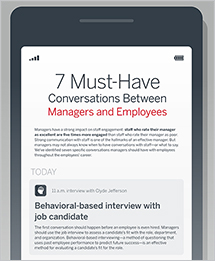Auto logout in seconds.
Continue LogoutMany people fall into one of two categories: "chronically passive" or "aggressive." But with time and practice you can master the important third category: being assertive, Catherine Saint Louis reports for the New York Times. Saint Louis outlines seven tips psychologists and other behavioral experts have identified to stand up for oneself, without being an aggressor.
Here are 4 ways to be a less-stressed leader
What it means to be assertive
People who are "chronically passive" often put the wants and needs of others ahead of their own—even when they don't want to, Saint Louis writes. In contrast, aggressive people may be prone to losing their temper or name calling to make their point.
But Saint Louis writes, "assertive people can stand up for themselves without tearing down anyone else."
Randy Paterson, a psychologist who wrote "The Assertiveness Workbook," put it this way: "If you take an aggressive posture, you're allowed on stage and your mission is to get everyone else off." But assertive people "don't mind sharing the stage," Saint Louis writes, and can be cordial even if they hold an unpopular opinion.
How to be assertive
So how do you strike the balance between "doormat" and aggressor, and establish yourself as an assertive individual? Saint Louis outlines seven tips to hone the assertiveness skill.
- Be brief: According to Julie de Azevedo Hanks, a psychotherapist, it's important to remember that "[n]o is a complete sentence." That means you don't have to explain to a friend or stranger why you don't want to do something, Saint Louis writes.
- Be gracious when declining an invitation: When Hanks is asked to speak at a conference for a second year and doesn't want to go, she might say, "I'm glad it went well last year, but this year is no good."
- Utilize "I" phrases: Phrases that start with "you" can sound accusatory, so it's always best to begin your sentences with "I" phrases, Saint Louis writes. For example, if a coworker expects answers from you on a Saturday night, tell them on Friday, "I need uninterrupted downtime this weekend so I'm not checking mail until Monday."
- If you're not sure, stall and take more time to think: If you don't know whether you want to accept a request or not, stall, Paterson said. Say something like, "Let me check my schedule and get back to you."
- Prepare your responses: If people frequently ask you for things, decide beforehand what you think is unreasonable and prepare a "pleasant but firm" response, Paterson said.
- Act it out: While it might feel odd, rehearsing some scenarios in front of a mirror or with a friend can help, Saint Louis writes.
- Check your tone: One of the keys to assertiveness is tone of voice, according to Suzanne Lease, an associate professor of counseling psychology at the University of Memphis. "Assertiveness is being confident in your statement or assessment, and saying it matter-of-factly, without a lot of emotion," she said. For example, instead of apologizing for not being able to complete four tasks you were assigned in a short amount of time, say, "I have time for two out of four today. Which do you prefer?" Lease said (Saint Louis, New York Times, 3/20).
Keep your management skills sharp with our "Management Master Class"
Back by popular demand, our four-part webconference series will help you hone in on key leadership skills including simple steps to retain more staff, coach more effectively, and manage your limited time more effectively all in 30 minutes a week.
- Tuesday, Apr. 2 | The 7 conversations managers must have with employees
- Tuesday, Apr. 9 | How to deliver effective feedback
- Wednesday, Apr. 17 | The manager's guide to retaining new hires
- Tuesday, Apr. 23 | How to get more done (with less stress)
Don't miss out on the latest Advisory Board insights
Create your free account to access 1 resource, including the latest research and webinars.
Want access without creating an account?
You have 1 free members-only resource remaining this month.
1 free members-only resources remaining
1 free members-only resources remaining
You've reached your limit of free insights
Become a member to access all of Advisory Board's resources, events, and experts
Never miss out on the latest innovative health care content tailored to you.
Benefits include:
You've reached your limit of free insights
Become a member to access all of Advisory Board's resources, events, and experts
Never miss out on the latest innovative health care content tailored to you.
Benefits include:
This content is available through your Curated Research partnership with Advisory Board. Click on ‘view this resource’ to read the full piece
Email ask@advisory.com to learn more
Click on ‘Become a Member’ to learn about the benefits of a Full-Access partnership with Advisory Board
Never miss out on the latest innovative health care content tailored to you.
Benefits Include:
This is for members only. Learn more.
Click on ‘Become a Member’ to learn about the benefits of a Full-Access partnership with Advisory Board
Never miss out on the latest innovative health care content tailored to you.

